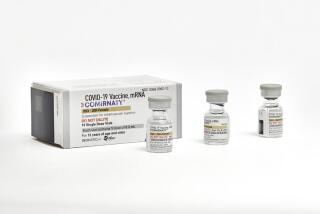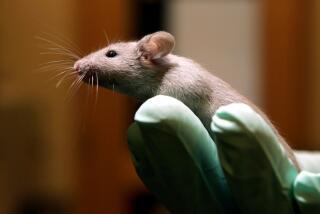Journal retracts controversial GMO cancer study
The journal Food and Chemical Toxicology is retracting a highly controversial French study it published last year linking genetically modified maize to cancerous tumors in rats.
In a statement released from its Cambridge, Mass., offices on Thursday, publisher Elsevier said that upon closer review of the paper, editors determined that the experimental sample was too small to allow for clear conclusions.
Also, the type of rat involved in the experiment is known for high incidence of tumors, it said.
“Unequivocally, the editor-in-chief found no evidence or fraud or intentional misrepresentation of the data,” the statement read. “However, there is legitimate cause for concern regarding both the number of animals in each study group and the particular strain selected.”
The paper, entitled “Long term toxicity of a Roundup herbicide and a Roundup-tolerant genetically modified maize,” was publised on Sept. 19, 2012.
It was quickly embraced by opponents of genetically altered foods and stoked debate over California’s failed Proposition 37, which sought to require labeling for genetically modified foods.
The research was led by Gilles-Eric Seralini, a professor at the University of Caen and founder of the nonprofit Committee for Research and Independent Information on Genetic Engineering.
On Friday, study authors said they were standing by their findings. They called the publisher’s criticisms “unacceptable” and accused the journal of exercising double standards. (The full statement can be read here.)
The researchers had studied 200 Sprague-Dawley rats, which were divided into groups and given different diets. A number were fed Monsanto Co.’s Roundup-resistant corn.
At the time the study appeared, geneticists were quick to criticize its sampling size and other methodologies.
On Thursday, Elsevier said that because of the controversy surrounding the study’s findings, the journal’s top editor made the rare request to review the authors’ raw data, and that the researchers willingly complied.
“The low number of animals had been identified as a cause for concern during the initial review process, but the peer review decision ultimately weighed that the work still had merit despite this limitation,” the Elsevier statement sad.
“A more in-depth look at the raw data revealed that no definitive conclusions can be reached with this small sample size regarding the role of either NK603 or glyphosate in regards to overall mortality or tumor incidence. Given the known high incidence of tumors in the Sprague-Dawley rat, normal variability cannot be excluded as the cause of the higher mortality and incidence observed in the treated groups,” the statement read.







